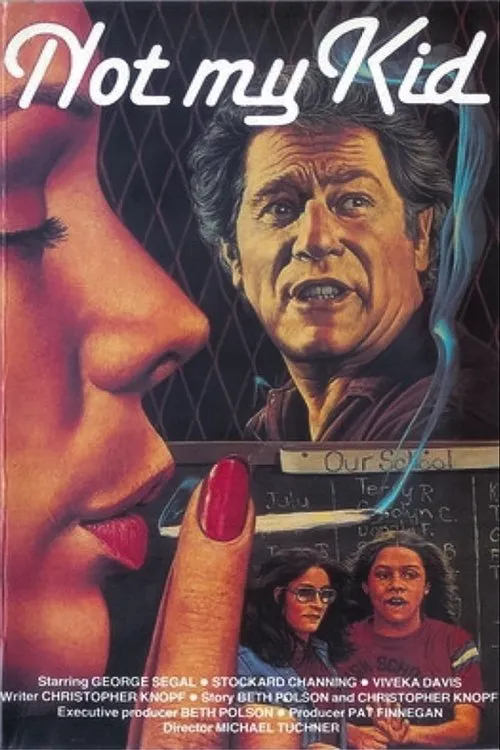Not My Kid

Plot
Not My Kid is a gripping and emotional drama that sheds light on the intense struggles and complexities surrounding teenage addiction. The film centers around Emily, a troubled teenager who has become entangled in a vicious cycle of substance abuse. Her parents, though well-intentioned, are at their wit's end, struggling to find the right approach to save their daughter from the depths of addiction. Desperate for help, Emily's parents enroll her in Dr. Royce's intervention program, a highly acclaimed but decidedly unconventional treatment approach. Dr. Royce's program involves a unique blend of therapy and confrontation, where participants undergo grueling group sessions, where fellow addicts expose their vulnerabilities, struggles, and sometimes, darkest secrets. The purpose of these meetings is to create an environment of shared experience and understanding, allowing participants to confront the harsh realities of addiction. However, as Emily becomes immersed in the program, her parents begin to question their decision. They are horrified by the stories shared by the other addicts, tales of thievery, exploitation, and tragic consequences that come with substance abuse. Emily's associations with these individuals spark anxiety, guilt, and shame, causing her parents to doubt their daughter's safety. The film takes an unflinching look at the darker aspects of addiction, forcing its characters – and the audience – to confront the harsh realities of this all-consuming disease. The evening meetings serve as a catalyst for this confrontation, as families are brought together with the addicts they once knew as family members, now grappling with addiction. These sessions are as brutal as they are poignant, with both sides facing off in a battle of emotions, anger, resentment, and desperation. Emily's parents find it nearly unbearable to behold their daughter in such an environment, forced to relive the memories and anguish she has caused them. Emily, however, finds a glimmer of hope in these meetings, slowly forming a support network with the other addicts who share her struggles. As the story unfolds, it becomes clear that Dr. Royce's intervention program is more than just a treatment approach; it's a reflection of the harsh truth that addiction is a family affair. The lines between perpetrator and victim, caregiver and enabler, blur in this complex web of dependencies. The film challenges the audience to consider their own role in the dynamics of addiction, making it a scathing, unflinching portrayal of a crisis that continues to ravage families and communities worldwide. Despite the unyielding portrayal of addiction's devastation, Not My Kid remains a film with a message of hope. Emily's story, though tragic, is a testament to the resilience of the human spirit. The film suggests that recovery is possible, not by erasing the pain of the past but by confronting it head-on, forging relationships that offer real support and understanding. As the narrative hurtles towards its climax, Emily's parents are faced with an impossible decision: to allow their daughter to continue in the program, which might hold the key to her recovery, or to withdraw her, shielding themselves from the anguish and pain that comes with addiction's messy, heartbreaking journey. The resolution of this dilemma will forever change the lives of Emily, her parents, and the other characters in the story. Ultimately, Not My Kid reminds us that recovery is a journey that demands courage, compassion, and unwavering commitment. By confronting the darkest corners of addiction, it becomes clear that healing is not just about fixing those who struggle, but also about healing the loved ones and families caught in the crossfire of this deadly disease.
Reviews
Recommendations


